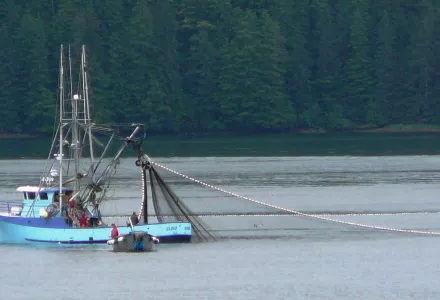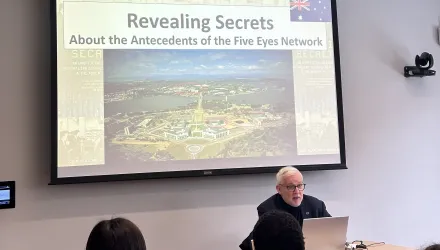One of the many signs that global fisheries are unsustainable is the continued expansion of fisheries further offshore and into deeper waters. This talk examines some of the recent science to understanding fisheries on the high seas, and how it relates to the current negotiations at the United Nation regarding a legally binding instrument for the conservation and sustainable use of the high seas. Aquaculture (the farming of aquatic species), which is often touted as a substitute for wild fish is, instead, putting additional pressure on the oceans due to the need to catch fish to feed carnivorous farmed species. Many of the current trends in aquaculture, including plans to mass produce octopus, are a mistake for both ecological and ethical reasons.
About the Speaker
Jennifer Jacquet works on global cooperation dilemmas, including climate change, the internet wildlife trade, and overfishing. She worked with Daniel Pauly’s Sea Around Us Project at the University of British Columbia for her PhD. Her dissertation was titled “Fish As Food in an Age of Globalization”. She joined NYU in 2012 and has since received a Sloan Research Fellowship in Ocean Sciences and a Pew Fellowship in Marine Conservation. She has an ongoing project related to high seas fisheries and recently co-curated a special collection on high seas science for the journal Science Advances, where she is an associate editor. Recent publications include, "High seas fisheries play a negligible role in addressing global food security”, “Watch over Antarctic Waters”, and “The case against octopus farming”.




